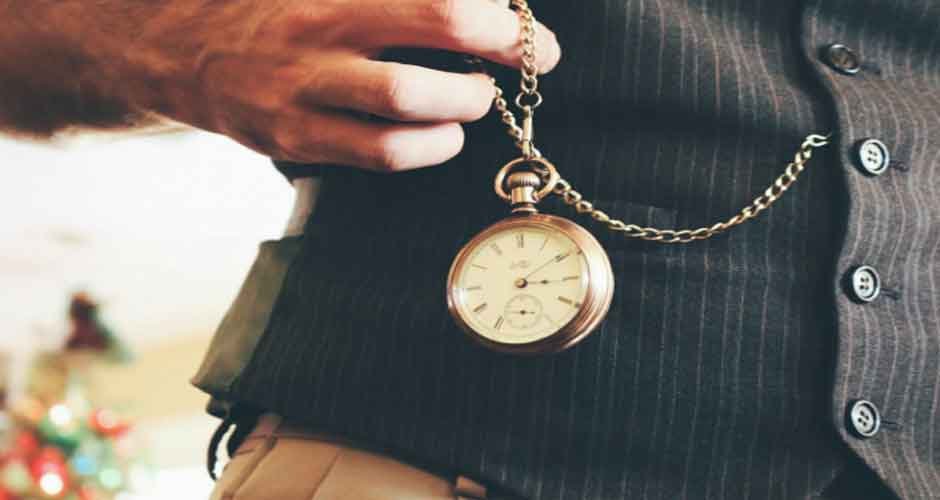In today’s market, watches are more than functional time-telling devices; they’re statements of style and heritage, intimate reminders of family history, and often major investments of both pride and money. So, if you’re hoping to find a buyer and sell your watch (be it a contemporary designer, luxury, or antique pocket watch), getting the best price hinges on several key factors.
This guide will help get you started on the path toward maximum returns, equipping you with the knowledge to approach the right buyer and secure a deal that reflects the true worth of your timepiece.
Professional Appraisal: The Key to Accurate Valuation
If you’re in the market to sell any kind of watch, it’s crucial to set realistic expectations for yourself. Not all watches are created equally, and their value can vary greatly. Before you consider selling, it’s important to do your research and understand what you can realistically expect to earn.
To avoid disappointment and ensure that you’re not undervaluing your timepiece, seek a professional evaluation. Experts specialize in assessing vintage watches and can provide a fair, informed assessment for you.
Many of the best watch-buying locations will also purchase paper money, coins, jewellery, and other antiques. Getting these services all under the same roof is ideal if you’ve got more than one item to sell, and you might become a repeat seller (after all, having a solid relationship with a staff of experts operating out of a brick-and-mortar storefront is the ideal place to be from a customer standpoint). All this is to say: you might be able to sell your watch and sell your silverware at the same time.
Selling Designer, Luxury, and Antique Watches: Tips for Top Dollar
Designer and luxury watches often fetch a higher price due to their brand reputation, craftsmanship and quality. To get the best price possible, ensure that your watch is in good condition and seek out buyers who appreciate the value of high-end timepieces. Bullion dealers often purchase gold watches, but only a handful have customers who will pay top dollar for designer or antique timepieces.
Antique pocket watches require special attention. Their value can decrease if they’re in poor condition or if they lack original parts. Handle these watches with care. Consult with specialists who understand their unique value and who have established networks of buyers interested in vintage watches.
This is another perk of selling your watch at a brick-and-mortar location instead of online. Longstanding storefronts are often connected to vast networks of buyers, sellers and collectors who might be looking for the exact model you’re hoping to sell.
Preparing Your Watch for Sale: Documentation and Care
Before selling, gather all your supporting documentation to prove the authenticity of your watch. This includes any certificates, receipts, or service records that might have come with the item. Ensure your watch is well-maintained and functioning properly to attract serious buyers.
Avoiding Scams: Finding a Reputable Buyer
To protect your asset from being undervalued, research potential buyers thoroughly. Look for those known for their transparency, expertise, and professionalism. It’s undeniably difficult to do this with online marketplaces, where you can never be sure about who’s on the other side of the avatar or username.
A reputable buyer will respect both you and the value of your watch and should have many positive reviews from happy customers who are willing to vouch for and often rave about the service they’ve received.
Determining the Age and Authenticity of Your Watch
The age of a watch can significantly impact its value. Locate the serial number, usually found on the back, to determine the watch’s date of manufacture and authenticity. If your watch lacks a serial number, other methods (such as examining the movement style and construction) can help estimate its age.
Material Matters: Assessing Value Based on Composition
The materials used in a watch, such as jewel count and precious metal content, play a significant role in its value. Watches made with valuable metals (like gold or silver) or with a high jewel count can be worth much more. Not exactly sure about the age, authenticity, precious metal content, or other elements that combine to form the timepiece’s value? This is all the more reason to seek out a true professional establishment that will help you determine these essentials with courtesy and top-notch customer service.
Final Thoughts: Setting Realistic Expectations
Ultimately, a watch is only worth what someone is willing to pay for it. While age and materials can contribute to its value, market demand is the final determinant. Approach the sale of your watch with a clear understanding of its worth and a realistic expectation of the selling price. Avoid online listings, marketplaces and pawn shops, if possible, and instead seek out a local buyer who’s actively seeking luxury, antique, and designer watches. Do all of the above, and you’ll be on track to a positive outcome.






